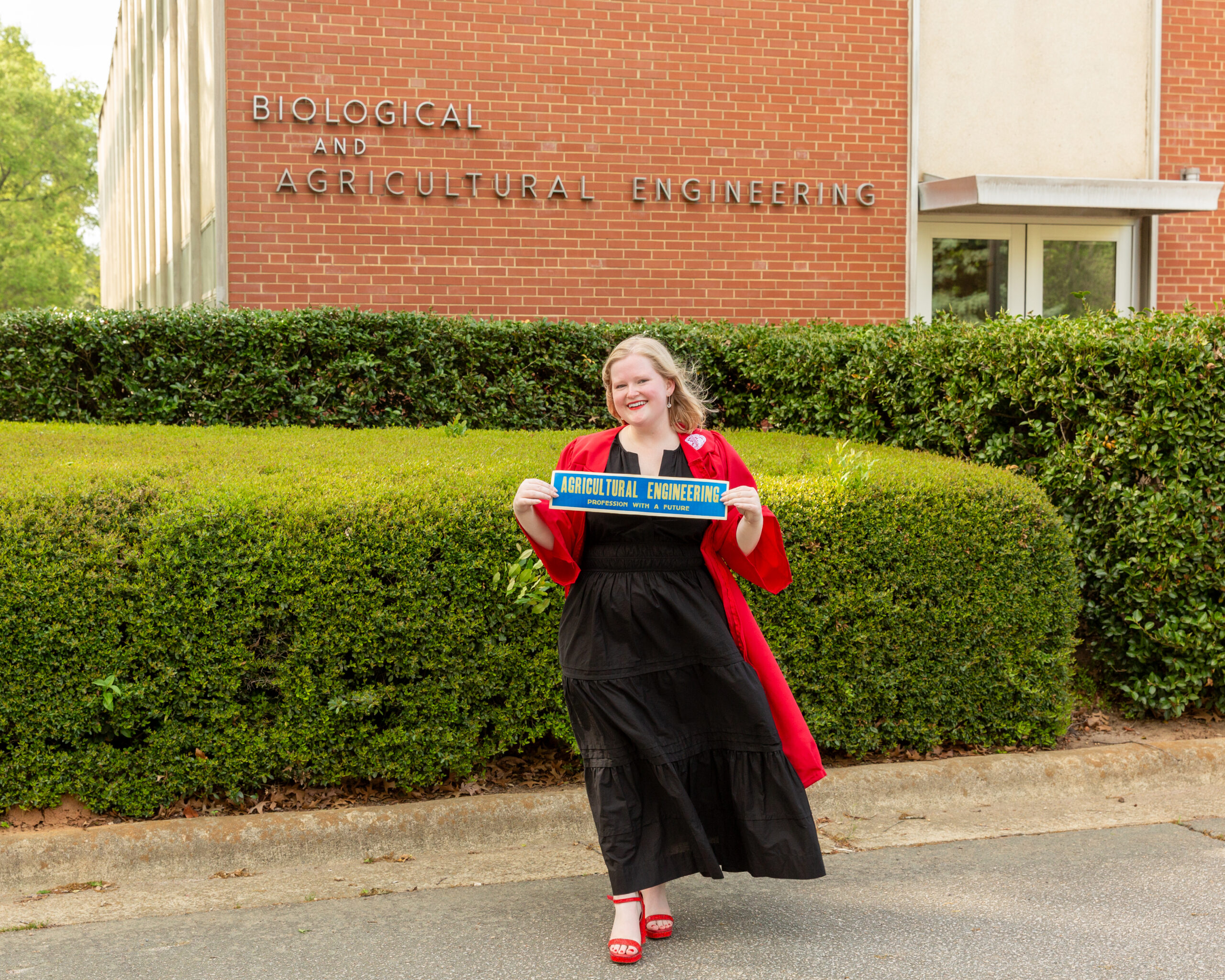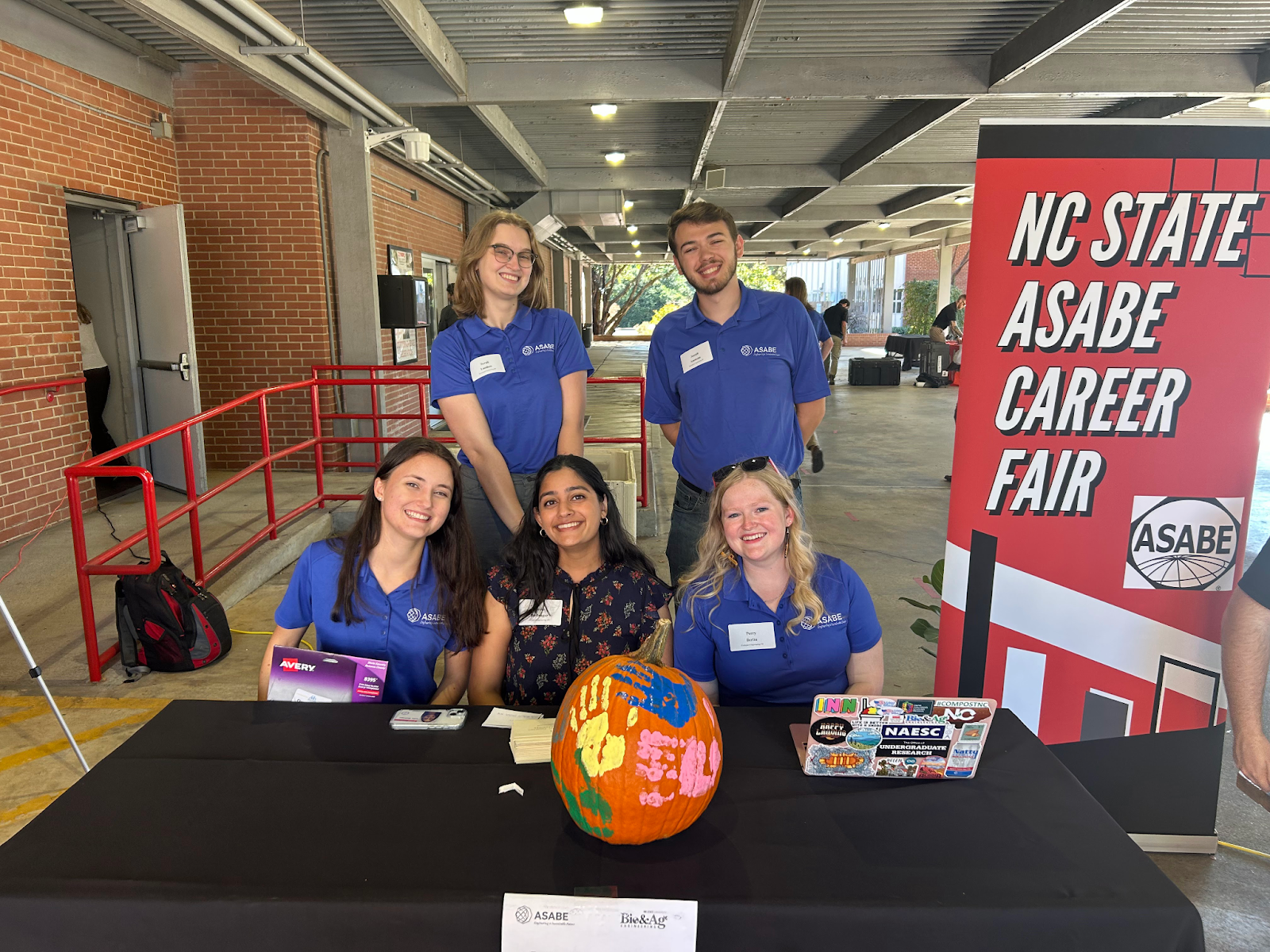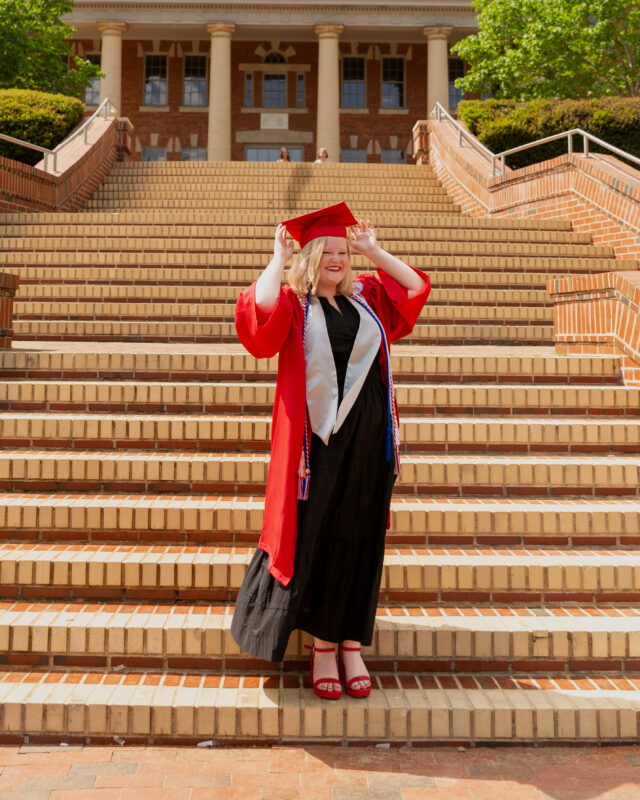Senior Insights: A Look at Biological Engineering, Research and Community

Evelyn Berlin is graduating with a degree in biological engineering this May. As her four years at NC State come to a close, she reflects on the people and choices that helped get her to the finish line.
- What is your major?
- Hometown?
Asheville, North Carolina
- What led you to NC State?
I found NC State because of the spectacular College of Engineering, but I decided to go to NC State after feeling the community aspect of the Wolfpack. I knew that was something I needed to be a part of.
- When did your interest in biological engineering start?
I discovered a passion for carbon capture during freshman engineering courses, and knew that I wanted to help develop the technology that would solve our climate crisis. I found Joe Sagues as I was researching carbon capture research at NC State, and the work in the Biocarbon Utilization and Sequestration (BUS) lab inspired me to change my major to biological engineering.

- What is one thing you took away from your time as a BAE student?
I have a thorough understanding that the things we do as biological and agricultural engineers have major impacts and consequences on the world. So many degrees are important, but maintaining needed resources like food and water are so vital to society that nothing else can exist without them. I am taking the responsibility of up keeping those resources very seriously.
- Are you involved in any extracurricular activities? If so, how did participating help you grow as a person/student?
I have been involved in a variety of activities during my time at NC State. I served as president and vice president of the Engineers’ Council, which allowed me to make friends from all over the College of Engineering and plan events to help students grow personally and professionally. I currently serve as the vice president of NC State’s American Society of Biological and Agricultural Engineering (ASABE) chapter, and I have helped plan and execute events like the ASABE career fair and sweetpotato sale. This has brought me much closer to my department, and I love getting to work with other student leaders in BAE. I have participated in undergraduate research throughout most of my college career working in the BUS lab. I am also a Grand Challenge Scholar, in the Student Wolfpack Club and in the country swing dance club!
- What is your role in BUS Lab?
I was involved in two projects in the BUS lab. The first project was designing carbon negative composting systems. My role was to serve as the go-between for the lab and NC State’s Compost Facility and Research Cooperative. During the summer of 2023, I went back and forth between the lab and the facility, and I learned the technical operation of mass scale food processing. I also took carbon dioxide and oxygen measurements to compare the industrial pile with the bench scale reactors that we were developing in the lab.
The second project I worked on was with soil amendments, where I helped to manage over 1000 mini soil jars. The goal was to use various waste products, such as dregs and grits from pulp and paper mills, to increase the pH of soil so that the soil can store more carbon and allow more healthy crops to grow.

“I have loved working in the BUS lab, especially with my lab mates who have always welcomed me with open arms. Thank you to Dr. Sagues for mentoring me and cheering me on throughout my undergraduate research journey!”
- What is unique about the undergraduate research experience?
So much of my undergraduate research experience has been about building community. The Grand Challenges Scholars gave me an incredible community of students who were as excited and passionate about their projects as I was, but also helped me feel seen and included on days when imposter syndrome kicked in or projects were not going to plan. My other research was within my lab. Everyone in the BUS lab made me feel welcome, were always open to my questions and cheered me on throughout successes, no matter how small.
After graduation Berlin plans to work as an Assistant Project Engineer at Agri-Waste Technologies. “I will get to work on agricultural systems all over the United States and help farmers create better systems for both their operations and the environment,” she says.
- Categories: